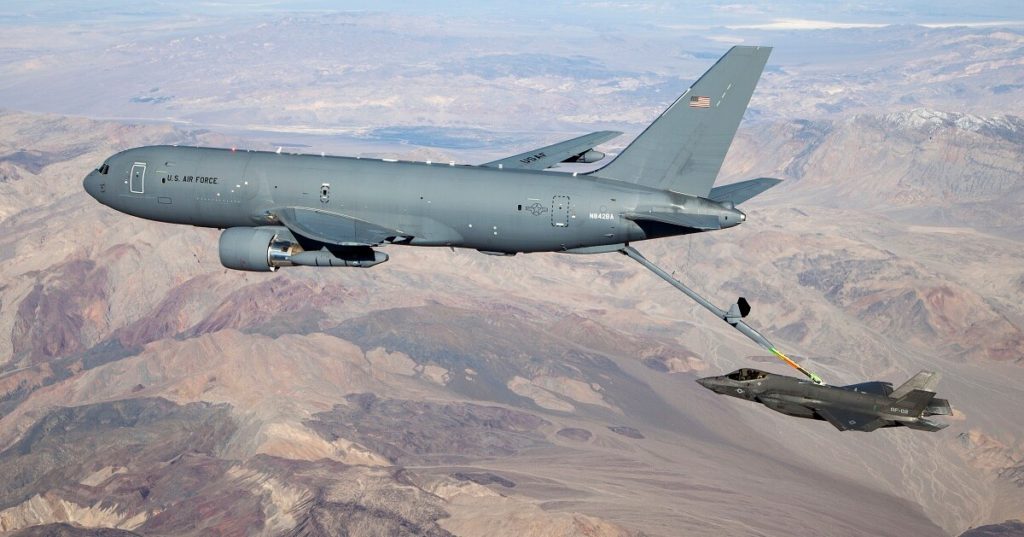US Air Force restricts KC-46 from carrying cargo and passengers

In a move that could have major impacts on the already-delayed tanker program, the U.S. Air Force has indefinitely barred the KC-46 from carrying cargo and passengers, Defense News has learned.
The decision was made after an incident occurred where the cargo locks on the bottom of the floor of the aircraft became unlocked during a recent flight, creating concerns that airmen could potentially be hurt or even killed by heavy equipment that suddenly bursts free during a flight.
“As a result of this discovery, the Air Force has submitted a Category 1 deficiency report and is working with Boeing to identify a solution,” Air Force Mobility Command spokesman Col. Damien Pickart said in a statement. The service uses the term Category 1 to describe serious technical issues that could endanger the aircrew and aircraft or have other major effects.
“Until we find a viable solution with Boeing to remedy this problem, we can’t jeopardize the safety of our aircrew and this aircraft,” he said.
Boeing could miss out on $1.5 billion if the maximum withholding is applied to all 52 tankers on contract.
The problem was discovered during a recent overseas operational test and evaluation flight, when KC-46 aircrew noticed that numerous cargo restraint devices had come unlocked over the course of the multiple legs of the trip.
“Prior to departing for each of these missions, aircrew fully installed, locked and thoroughly inspected each restraint, and performed routine inspections of the restraints in flight,” Pickart said. “Despite these safety measures, the unlocking of cargo floor restraints occurred during flight, although no cargo or equipment moved and there was no specific risk to the aircraft or crew.”
A source with knowledge of the issue told Defense News that if all restraints on a particular pallet had become unlocked, it would be able to roll freely throughout the cabin. If all cargo became unlatched, it could pose a safety risk to aircrew or even unbalance the aircraft – making the plane “difficult, if not impossible” to control.
While this problem has only been observed on one KC-46, the Air Force does not have enough information to rule out other aircraft having a similar defect.
The problem also poses a danger to the tanker’s operational test schedule, Pickart said. The program was set to start initial operational test and evaluation this fall, with pre-IOT&E activities already initiated.
“This is a multi-mission aircraft, it’s for carrying cargo and passengers, it’s for refueling and also the aeromedical evacuation mission,” he said. “If you can’t carry cargo pallets and patient litters, a significant amount of your core missions cannot be properly tested.”
In a statement, KC-46 manufacturer Boeing acknowledged that it had been notified of the new issue.
“The company and the Air Force are cooperatively analyzing the locks to determine a root cause,” Boeing stated. “The safety of KC-46 aircraft and crew is our top priority. Once a cause has been identified, the tanker team will implement any required actions as quickly as possible.”
But the problem could be bad news for Boeing’s bottom line. The company is locked into a fixed-price contract for where it is responsible for paying for any expenses beyond the initial $4.9 billion award for the development of the aircraft. So far, the company has paid more than $3.5 billion of its own money to fund corrections to ongoing technical issues. www.defensenews.com
